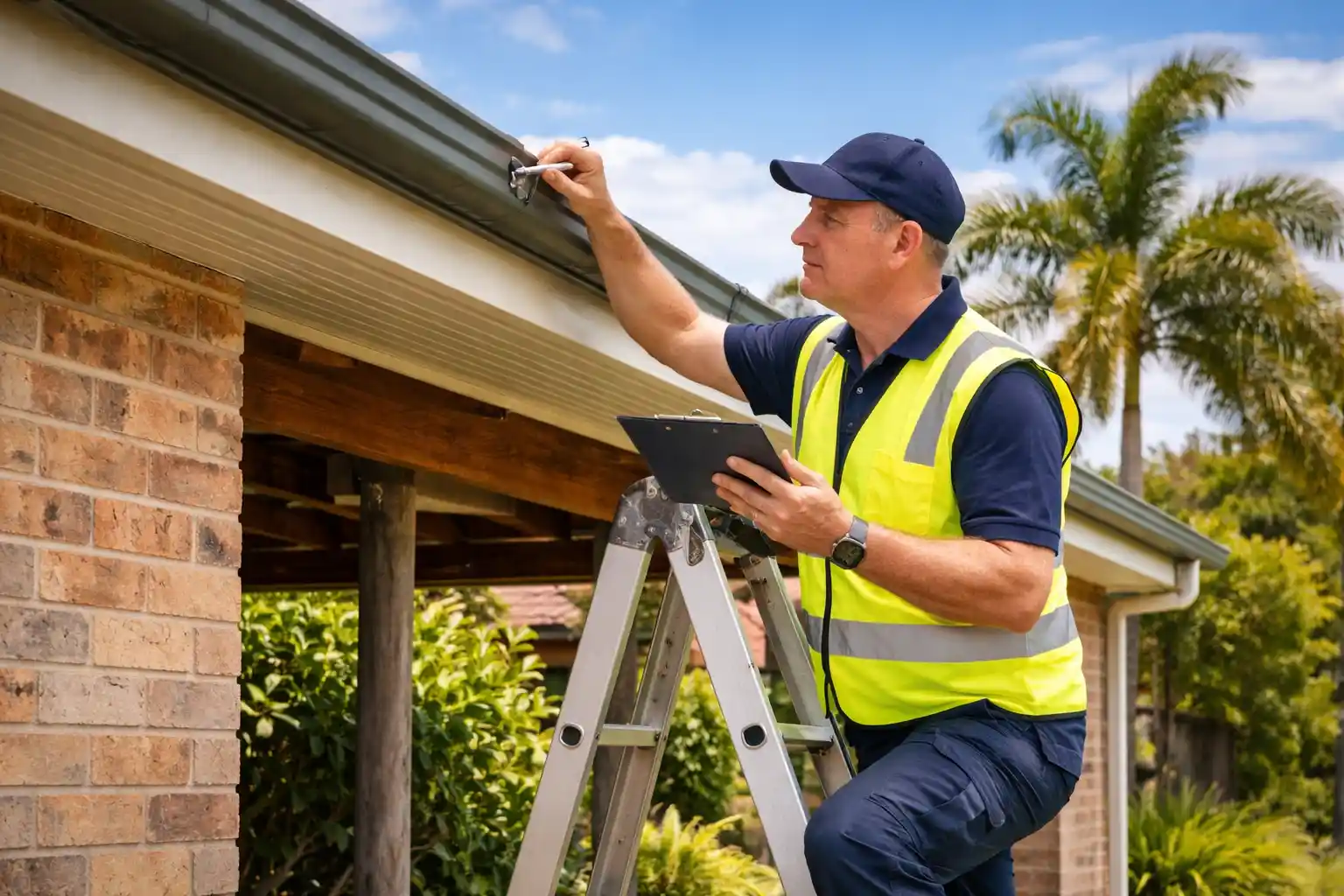Preparing for a building inspection can feel overwhelming, but it doesn’t have to be. By taking a few simple steps, you can make sure your home is ready for inspection and that everything goes smoothly. Building inspections are essential for uncovering hidden issues, ensuring safety, and getting peace of mind about your property.
A thorough building inspection can save you from future headaches by identifying potential problems early. Whether you’re buying a new home or getting ready to sell, having your property inspected is crucial. Preparing for this inspection involves some planning and a bit of effort, but it’s well worth it.
In this guide, we’ll walk you through the importance of building inspections, provide a handy checklist for preparation, discuss what inspectors typically look for, and outline the steps to take after the inspection. By following these steps, you’ll ensure your property is in top shape and ready for whatever comes next. Let’s dive in and make your building inspection a breeze.
Understanding the Importance of a Building Inspection
Building inspections play a vital role in maintaining the safety and value of your property. Whether you are buying, selling, or simply ensuring your home remains in good condition, an inspection can provide essential insights into the state of the building.
One major benefit of a building inspection is identifying hidden problems. Many issues like structural weaknesses, termite infestations, or water damage aren’t always visible to the untrained eye. An inspector can uncover these problems before they become serious, saving you money on costly repairs.
Moreover, building inspections give you peace of mind. Knowing the true condition of your property helps you make informed decisions. If you’re buying a house, an inspection can confirm that you’re making a sound investment. Selling a home? An inspection report can make your property more attractive to potential buyers by showcasing its good condition or demonstrating transparency about any issues.
Finally, regular building inspections help maintain your property’s value. Addressing minor issues early prevents them from becoming major problems that could devalue your home. Overall, building inspections are an invaluable tool in managing and protecting your property investment.
Preparing Your Home for the Inspection: A Checklist
Preparing your home for a building inspection involves a few simple steps. This checklist will help you organise and prioritise what needs to be done before the inspector arrives.
1. Clean and Declutter: Start by giving your home a thorough cleaning. Remove any clutter that could obstruct the inspector’s view of critical areas. A clean, organised home makes it easier for the inspector to do their job efficiently.
2. Access Points: Ensure all areas of your home are accessible. This includes the attic, basement, crawl spaces, and any other hard-to-reach spots. Clear pathways and unlock doors or gates that the inspector might need to access.
3. Utilities and Appliances: Make sure all utilities such as water, electricity, and gas are turned on. This allows the inspector to test systems like heating, cooling, and plumbing. If you have pilot lights for stoves or water heaters, ensure they are lit.
4. Repair Minor Issues: Fix any small problems you’re aware of, such as leaky taps, loose tiles, or faulty light switches. Addressing these issues beforehand can help create a positive impression during the inspection.
5. Documentation: Gather any relevant documents related to the property. This could include permits, repair invoices, and warranties. Having these documents ready can answer any questions the inspector may have and streamline the process.
6. Pets and Children: Arrange for pets and young children to be out of the house during the inspection. This ensures that the inspector can work without distractions and that everyone remains safe.
By following this checklist, you can help ensure your home is ready for inspection. This preparation can lead to a more efficient inspection process and positive outcomes for your property assessment.
What Inspectors Look For: Key Areas of Focus
Inspectors are thorough and methodical, focusing on several key areas to ensure your property is safe and in good condition. Here are some of the main areas they will assess:
1. Structural Integrity: The inspector checks the foundation, walls, and roof for any signs of damage or weakness. Cracks in the foundation, sagging roofs, and uneven floors can indicate serious structural issues.
2. Roof and Attic: The condition of the roof is scrutinised for missing tiles, leaks, or any signs of water damage. In the attic, they look for proper insulation, ventilation, and any signs of pest infestations or water intrusion.
3. Plumbing: Inspectors examine the plumbing system, including pipes, fixtures, and water heaters. They check for leaks, water pressure, and corrosion. They will also inspect bathrooms and kitchens for proper drainage and functionality.
4. Electrical System: The electrical panel, outlets, light fixtures, and wiring are inspected for safety and code compliance. The inspector looks for outdated wiring, overloaded circuits, and other potential hazards.
5. HVAC Systems: Heating, ventilation, and air conditioning systems are evaluated for their condition and efficiency. The inspector checks for proper operation, maintenance records, and any signs of wear or damage.
6. Exterior and Grounds: The exterior of the building, including siding, windows, and doors, is checked for damage and weatherproofing. Gutters, downspouts, and drainage systems are also inspected. The grounds, including driveways, walkways, and fences, are checked for safety and condition.
By focusing on these key areas, inspectors can provide a comprehensive assessment of your property’s condition, ensuring that any issues are identified and addressed.
After the Inspection: Steps to Follow Up and Address Findings
Once the inspection is complete, there are important steps to take to follow up on the findings. These steps help ensure that any issues uncovered during the inspection are properly addressed.
1. Review the Report: Carefully read the inspection report to understand the findings. The report will detail any issues and may include photographs and recommendations for repairs. Take note of any major problems that need immediate attention.
2. Prioritise Repairs: Based on the inspector’s recommendations, prioritise the repairs. Address any safety hazards first, such as electrical issues or structural problems. Next, focus on any issues that could worsen over time, like leaks or pest infestations.
3. Get Quotes: Contact qualified professionals to get quotes for the necessary repairs. Make sure to choose reputable contractors who are experienced in handling the specific issues identified in the inspection report.
4. Plan and Schedule Repairs: Once you have the quotes, plan and schedule the repairs. If you are selling the property, you may need to negotiate with the buyer on who will handle and pay for the repairs.
5. Follow Up with the Inspector: If there are any items in the report that you do not understand, follow up with the inspector for clarification. They can provide additional information and guidance on how to address the issues.
Conclusion
Preparing for a building inspection doesn’t have to be complicated. By understanding the importance of inspections, using a checklist to prepare your home, knowing what inspectors look for, and following up on their findings, you can ensure your property remains in excellent condition.
Building inspections protect your investment, provide peace of mind, and help maintain your property’s value. Taking the time to prepare and address any issues is a small effort that pays off in the long run. Whether you’re buying, selling, or simply maintaining your home, being proactive is key.
If you need a thorough inspection to uncover potential issues and give you peace of mind, reach out to C & W Services. Our experienced team is here to help you with all your inspection needs. Contact us today to schedule your building inspection in Yeppoon and Lammermoor.



